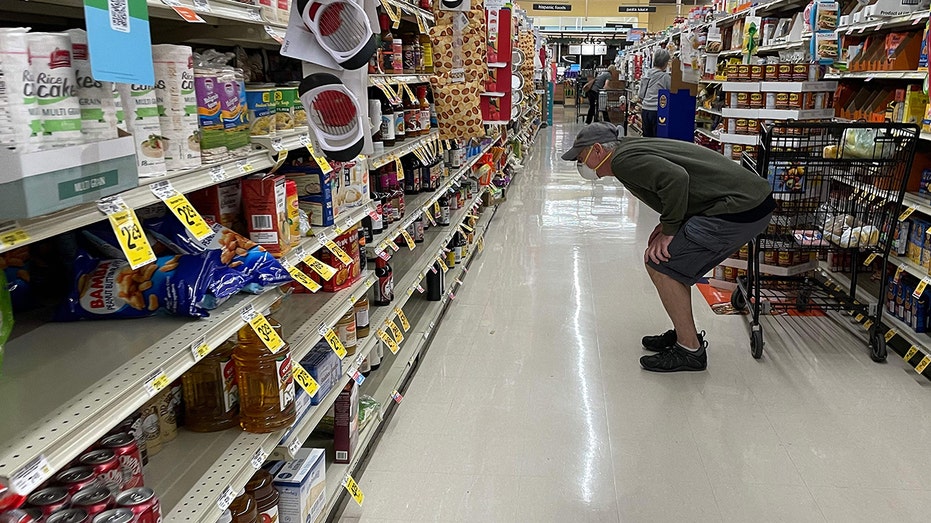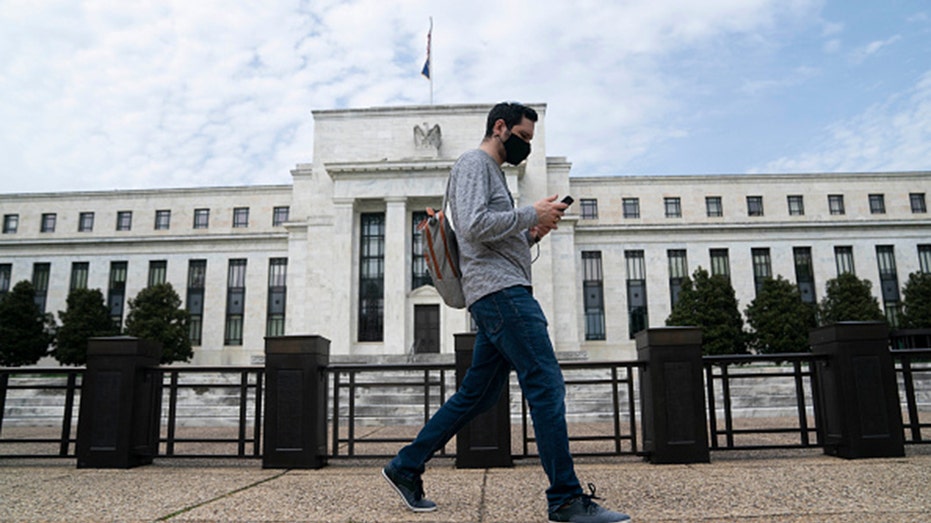Inflation likely to remain elevated this year: CBO analysis
Inflation expected to remain above Fed's preferred level until 2024
Inflation close to 'temporary peak': Economist
Thru the Cycle President John Lonski warns inflation 'could speed up again if the U.S. economy regains momentum.'
Sky-high inflation is expected to persist for the remainder of the year, further burdening U.S. households as they face steeper prices for everyday necessities, the Congressional Budget Office said Wednesday.
The CBO, in its latest budget and economic outlook, projected that key measures of inflation will show signs of easing this year compared to 2021 but will remain uncomfortably high because of strong consumer demand and continued disruptions in the supply chain.
The nonpartisan budget office estimated that the consumer price index, a wide-ranging measure of goods and services, including food, autos, gasoline, health care and rent, will hit 4.7% for the entirety of 2022. While that is down slightly from the 6.7% recorded in 2021 — the highest level in four decades — it's still significantly higher than the Federal Reserve wants.
Inflation is not expected to fall to the Fed's preferred level of 2% until 2024, according to the CBO.
WHAT IS STAGFLATION? WHY ECONOMISTS ARE WORRYING ABOUT A 1970S-STYLE CATASTROPHE

A man shops at a Safeway grocery store in Annapolis, Md., May 16, 2022, as Americans brace for summer sticker shock and inflation continues to grow. (Jim Watson/AFP via Getty Images / Getty Images)
Still, the report also contained good news: The CBO estimated that gross domestic product, the broadest measure of goods and services produced in a country, will grow 3.1% in 2022, driven by strong consumer spending and demand for services. The budget office expects growth to slow slightly in coming years, forecasting a GDP of 2.2% in 2023 and 1.5% in 2024.
"In CBO’s projections, the current economic expansion continues, and economic output grows rapidly over the next year," the report said. "To fulfill the elevated demand for goods and services, businesses increase both investment and hiring, although supply disruptions hinder that growth in 2022."
The report seems to counter growing pessimism on Wall Street that the Federal Reserve will fail to rein in inflation — which is still hovering near a 40-year high — without inadvertently triggering an economic downturn. Hiking interest rates tends to create higher rates on consumer and business loans, which slows the economy by forcing employers to cut back on spending.

A man wearing a mask walks past the U.S. Federal Reserve building in Washington D.C., April 29, 2020. (Xinhua/Liu Jie via Getty Images / Getty Images)
Bank of America, as well as Fannie Mae and Deutsche Bank, are among the Wall Street firms forecasting a downturn in the next two years.
GET FOX BUSINESS ON THE GO BY CLICKING HERE
Fed Chairman Jerome Powell has acknowledged there could be some "pain associated" with reducing inflation and curbing demand but pushed back against the notion of an impending recession, identifying the labor market and strong consumer spending as bright spots in the economy. Still, he has warned that a soft landing, the sweet spot between cooling demand without crushing it and triggering a recession, is not assured.

Night falls at the Capitol in Washington Dec. 2, 2021. (AP Photo/J. Scott Applewhite / AP Newsroom)
"It will be challenging, it won’t be easy. No one here thinks that it will be easy. Nonetheless, we think there are pathways ... for us to get there," Powell said during a recent interview with Marketplace.





















